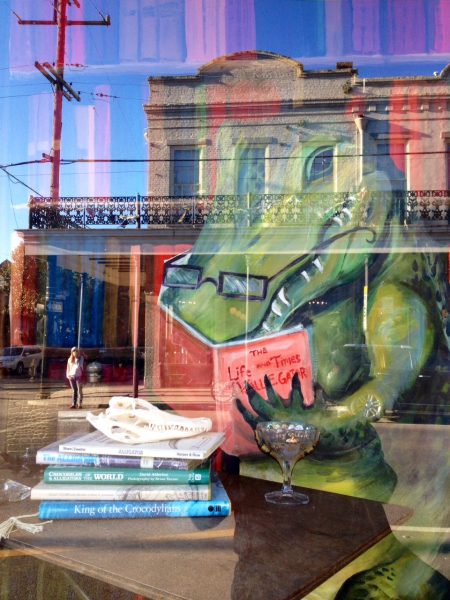Your story is an overtly craft-conscious piece, almost meta-narratively bent. Can you talk about the choice behind using different dialog tags than “said”?
A long while ago, there was circulating for a brief moment in literary circles a handout from a secondary school teacher entitled “Said Is Dead,” and it contained a list of alternatives to use instead of “said.” The literary world was outraged at how this teacher and others in secondary schools throughout the land had equated good writing with varying quote attribution! Of course, there is a point there, that there’s more to writing than randomly picking an alternative. But the outrage—Don’t these lit folks know that “good writing” uses “said” almost exclusively?—seemed a bit much to me. I wondered: Don’t “literary writers” know that they created their own construct of “good writing”—and decided that the exclusive use of “said” would constitute it? So the whole thing bothered me—and still does—way more than it should have. I wrote this piece as a way to think about what might be lost in the creation of a world where the only fully literary-writer-approved attribution was “said.” Imagine a world where people just “said” things to each other, never once cooing.
You are a notable figure in (very) short fiction writing circles. What attracts you to the form? Which writers do you look to for inspiration?
Thanks for saying that. The form seems to be continually in flux, defining and redefining itself and our notions of genre and story. I’d say Kathy Fish is an excellent flash writer who I and many others have turned to for inspiration.
You founded Matter: The Journal of Compressed Creative Arts, which recently became one of the rare non-profit literary presses that actually pays writers ($50 for accepted pieces). How does reading and publishing others’ writing change your creative process?
I become much more aware of the possibilities of the short form—and also see the need for each piece sent out to journals to differentiate itself in some way from the rest of the submissions. Also, reading such amazing work day after day pushes me to want to improve specific drafts and my writing in general.
What’s next for Randall Brown? I’ve been noticing an upward trend in puns posted to Facebook. Can we guess it’s humor writing?
Well, the Facebook puns are stolen from others far more witty than I. So if I pursue that route, I see a lawsuit in my future. I feel like I’m still not writing the stories on the page as well as I do in my mind. I’d like to get better at making that incarnation from the “ideal” to the “flesh.”
How does Randall Brown spend eternity? With whom?
With my wife, two kids, and our many dogs. Whatever we are doing, I’ll be blissfully happy.



 The SmokeLong Grand Micro Contest (The Mikey) is now an annual competition celebrating and compensating the best micro fiction and nonfiction online.
The SmokeLong Grand Micro Contest (The Mikey) is now an annual competition celebrating and compensating the best micro fiction and nonfiction online.